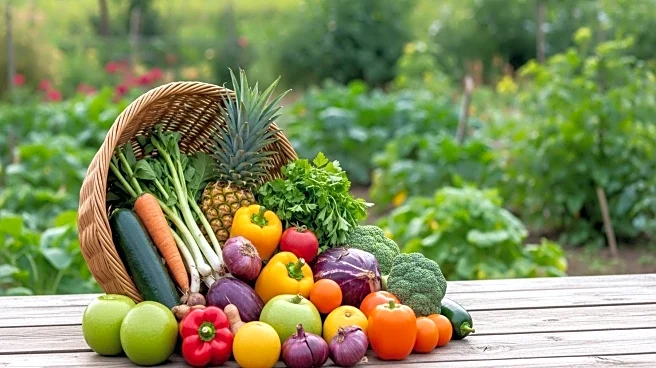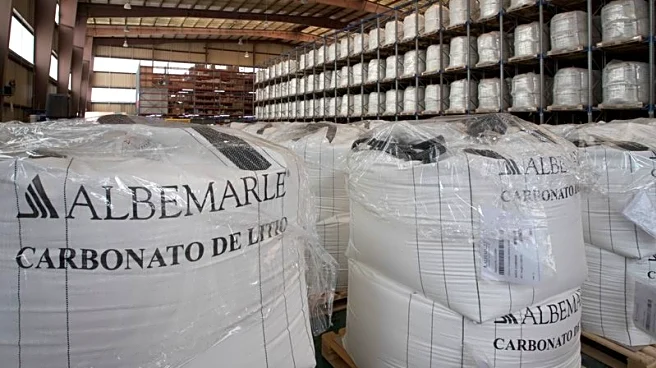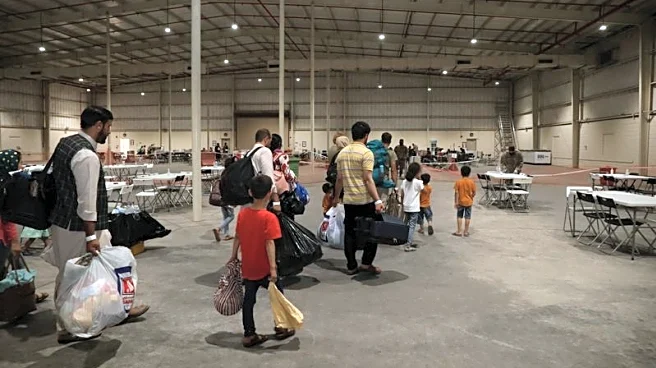What's Happening?
Community Supported Agriculture (CSA) programs are being utilized by farms to stabilize revenue and provide local communities with fresh produce. These programs require customers to commit financially upfront, ensuring farmers have a predictable income throughout the growing season. The structure of CSA programs can vary, with some farms offering traditional models where customers receive a share of the harvest, while others, like Nezinscot Farm, use a credit-like system allowing customers to spend their investment over time. CSA programs offer a variety of food options, including vegetables, fruits, meat, and dairy, depending on the farm's production capabilities. The frequency of food distribution can range from weekly to biweekly, and costs vary by farm, with options available for low-income individuals through programs like Maine Harvest Bucks.
Why It's Important?
CSA programs play a crucial role in supporting local economies by providing farmers with a stable income and reducing reliance on external food sources. This is particularly significant in rural areas where agriculture contributes substantially to economic impact and job creation. By investing in local farms, communities help sustain local businesses and workforce, while also enhancing food security. During disruptions like the COVID-19 pandemic, having a robust local food network ensures access to fresh produce. Additionally, local farming practices contribute to environmental conservation by preserving land and reducing carbon emissions associated with long-distance food transportation.
What's Next?
As CSA programs continue to grow, more farms may adopt diverse models to cater to varying customer needs and expand their offerings. Increased participation in programs like Maine Harvest Bucks could further support low-income families, enhancing community access to nutritious food. The ongoing development of CSA programs may also encourage more sustainable farming practices and strengthen local food networks, potentially influencing broader agricultural policies and community initiatives focused on food security and environmental conservation.
Beyond the Headlines
CSA programs not only provide economic benefits but also foster community engagement and education about sustainable agriculture. By participating in these programs, consumers gain a deeper understanding of food production processes and the importance of supporting local farmers. This can lead to increased advocacy for policies that promote sustainable farming and local food systems. Additionally, CSA programs can serve as a model for other regions looking to enhance food security and economic resilience through community-driven initiatives.











